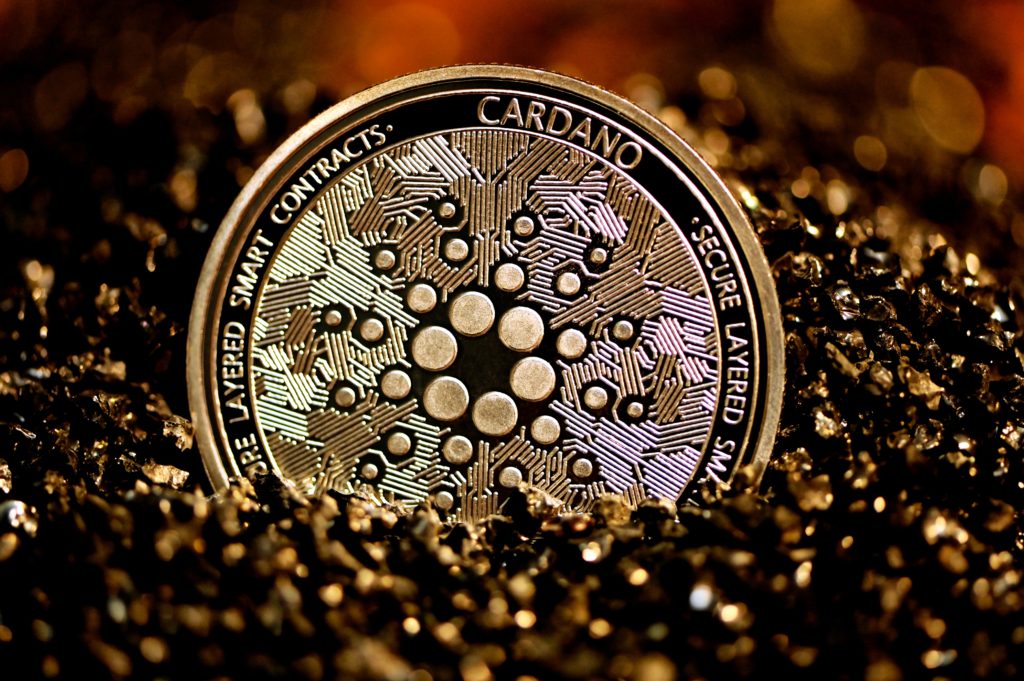Table of Contents
Like cryptocurrency mining, staking is an easy way to earn passive income and support the stability of the network. Put simply, in this context, Cardano staking means putting Cardano coins on stake and receiving ADA stake rewards if the created block is added to the blockchain. The size of the staked ADA is proportional to how much ADA the user holds. The ability to pledge or delegate a stake is fundamental to how the network operates.
The blockchain was developed by Charles Hoskinson, the co-founder of Ethereum, a Proof of Work blockchain (currently planning to switch to a Proof of Stake model in 2022). Understanding the limitations of this type of blockchain, Hoskinson began creating Cardano and its main cryptocurrency, ADA, in 2015 and officially launched in 2017. It uses the Ouroboros consensus protocol, which is the first of its kind to be both provably secure and based on peer-reviewed research.
Key Takeaways
- Cardano Staking is an easy method of earning passive income while supporting the stability of the network
- The blockchain uses the Ouroboros consensus protocol, which is based on the Proof of Stake model.
- Cardano’s cryptocurrency is called ADA, and it has two official wallets: Daedalus and Yoroi.
- In order to stake ADA, the cryptocurrency holders can either delegate their stakes to someone else’s pool or operate their own.
- The first reward is usually earned in 15-20 days, after which the rewards are added once every five days.
What is Cardano Staking and How to Stake ADA?
Cardano’s cryptocurrency is named after a 19th-century mathematician considered the first computer programmer in the world, Ada Lovelace. Anyone who holds ADA can gain rewards by either delegating their stake to someone else’s ADA staking pool or running their own. Delegation enables ADA holders who are not skilled enough or do not wish to operate a node themselves to partake in the network and receive a reward according to how much they delegated. The amount of stake delegated determines who will be chosen to add the following block and receive the monetary reward. The higher the amount (not going over a specific limit), the higher the possibility of being chosen. Like in other Proof of Stake blockchains, the rewards are shared with those who delegated their stake to the pool.

When to Expect the First Reward?
Delegating to a staking pool infers delegating your entire wallet, not a certain amount of the cryptocurrency. In other words, you can remove and add funds to your wallet, and your ADA stake rewards will be updated accordingly. Earnings are calculated at the end of an epoch (5 days) based on how many blocks the pool has produced. These rewards are paid out at the start of the next epoch and are automatically added to your staked balance. Initially, it will take from 15 to about 20 days to earn the first reward after your first delegation. However, from then on, you will receive it every epoch starting from your active stake made two epochs prior.
Choosing a Cardano Wallet
Currently, Cardano has two Wallets: Daedalus (full-node), developed by IOHK, and Yoroi (browser-based), developed by EMURGO.
Daedalus’s uniqueness comes from its ability to download a complete copy of the Cardano blockchain and validate each transaction in its history independently. This feature allows it to provide maximum security, as well as fully trustless operation without the use of centralized third-party servers. Unlike its counterpart, Yoroi is a light wallet, meaning it does not need to download a complete copy of the blockchain. It makes ADA crypto coin storing and transacting a simple and quick process. Unlike Daedalus, which is an application for desktops, Yoroi also has a downloadable app.
Choosing which one to use mainly depends on what you consider more important for your needs: strong security or simplicity and speed.
Choosing a Cardano Staking Pool
Stake pools can be private or public. In the case of private stake pools, the rewards are given only to the owners. On the other hand, a public stake pool is a node on the Cardano network that has a public address to which other participants can delegate and gain rewards. Stake pools are managed by a dependable operator, which can be a person or company that has the skills and resources to run the node consistently. As mentioned, this can be a useful option to those who do not want to operate a node themselves but would like to take part in the protocol and earn rewards.
Some of the key factors that influence stake pools and the rewards are:
Pledging Mechanism
Although a minimum pledge amount is not required, having a higher amount of ADA pledged will most likely attract more delegators since it means that the rewards will be higher as well.
Saturation Parameter
If a pool has reached the point of saturation, its rewards will begin to dwindle. This mechanism was put in place to keep the interests of the delegators and operators, as well as to not allow any pool to become too large.
Desirability Index
On the Daedalus and Yoroi, it is calculated by combining the stake, fees, and margin of the pledge owner with influence from the pool’s performance and saturation. For more information about how to choose a staking pool that best fits your needs, you can read our blog about that topic.
Staking Cardano: Steps Made Easy

Step 2: Staking Cardano (ADA)
If you want to start staking on EGG.fi, you can visit our “Staking” page through the button below. Once you are on the page, you can see which coins are available to be staked by selecting the cryptocurrency and clicking on the “Stake” button. We are currently in the process of adding Cardano staking. After you click the button, you will see a window where you can write the amount of tokens you wish to stake and see the rewards you will gain at the end of the locking period. The benefit of using the EGG platform for staking Cardano is that you earn additional EGG tokens. After clicking “Stake” once more, you will receive two pop-ups apart from each other. Although the waiting time may seem long, please do not leave or refresh the page; otherwise, you would need to start over. Once the “Transaction Submitted” message is displayed, your staking is complete.
Dictionary
Wallet – used for receiving, sending and storing digital assets like ADA
Saturation – the ideal amount of stakes delegated to a particular stake pool
Epoch – accounting periods on Cardano
Final Thoughts
Cardano is a blockchain that uses the Ouroboros consensus protocol (a PoS based peer-reviewed protocol). Its cryptocurrency is ADA, and anyone that holds it also has a stake in the network. You can use the ADA to delegate your stake to a staking pool or operate one yourself, which requires a wallet. Although currently not available on the EGG platform, Cardano offers the full-node wallet Daedalus and light wallet Yoroi.
Disclaimer: The opinion expressed here is not investment advice – it is provided for informational purposes only. It does not necessarily reflect the opinion of EGG Finance. Every investment and all trading involves risk, so you should always perform your own research prior to making decisions. We do not recommend investing money you cannot afford to lose.
 English
English Français
Français Español
Español Bahasa Indonesia
Bahasa Indonesia 中文 (中国)
中文 (中国) Русский
Русский Português
Português Deutsch
Deutsch

